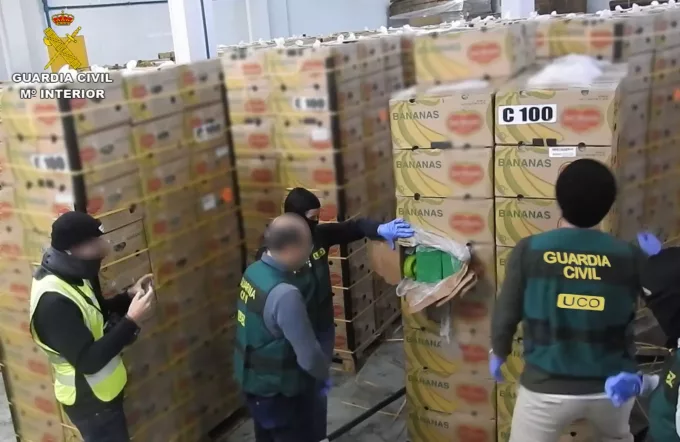White House calls on forwarders in its war on illegal fentanyl shipments
The US government has decided to address the fentanyl crisis – and has tasked freight ...

The European Union is stepping up its war on drugs, yesterday launching the European Ports Alliance in an effort to curtail drug trafficking into the bloc.
“Europe has a drug problem – and it is getting worse,” the EU’s economy commissioner, Paolo Gentiloni, said.
“To tackle the growing inflows of cocaine and other illicit substances, we need customs, law enforcement and port authorities to work more closely and more effectively together. That’s what the European Ports Alliance aims to do.
“By bringing together local, national and European authorities in this public-private partnership, we can pool the expertise and resources needed to tackle this scourge,” he added.
Over recent years it has become clear that smuggling drugs in shipping containers – particularly cocaine, which has seen production levels soar to extraordinary heights – has become traffickers’ favoured mode of transport and led to growing problems of corruption in Europe’s ports and terminals, as organised criminal gang members have infiltrated legitimate logistics firms.
“The vast majority of illicit drugs into the EU are trafficked along maritime routes,” said EU commissioner for home affairs Ylva Johansson. “70% of drug seizures are in EU ports. That is why cooperation between national and EU authorities and ports is vital.
“Organised crime is adept at moving from one port to another as opportunities rise and fall. To challenge this we must build a network.
“The violent consequences of drug trafficking are as big as the threat of terrorism,” she added.
Seizures of cocaine in the EU are at record levels, with over 300 tonnes now being discovered every year – and neither is it a coincidence that the EU Ports Alliance is being launched in Antwerp during Belgium’s presidency of the EU. Last year, Belgian customs authorities seized a record 121 tonnes of cocaine at the port of Antwerp-Bruges, 10% more than in 2022.
Supported by Europol and European criminal justice agency Eurojust, the European Ports Alliance will bring €200m in funds for strengthening customs authorities’ risk management and inspection regimes, strengthening police presence in ports and creating the public-private partnership. This aims to raise “awareness among the different actors, but also to support port authorities and private shipping companies in their role in the fight against drug trafficking and criminal infiltration”.
“It is equally crucial that the ambitious reform of EU customs that the EC proposed last year is agreed as soon as possible,” Mr Gentiloni said. “This will allow for more efficient exchange of information between customs and law enforcement.
“Because our Customs Union is only as strong as its weakest link, we must work better together to ensure that all our ports have the tools they need to stop the drug traffickers in their tracks.”
The initiative also aligns with work being undertaken by port authority lobby group the International Association of Ports and Harbours (IAPH), and echoes many points to be raised in a forthcoming submission to the 48th meeting of the IMO Facilitation Committee, which proposes revisions to the guidelines for “the prevention and suppression of the smuggling of drugs, psychotropic substances, and precursor chemicals on ships engaged in international maritime traffic”.
An IAPH spokesman told The Loadstar specific demands on ports would include a greater focus on managing risk and building resilience, closer, proactive digital collaboration between port and customs authorities and sharing best practices.
Comment on this article